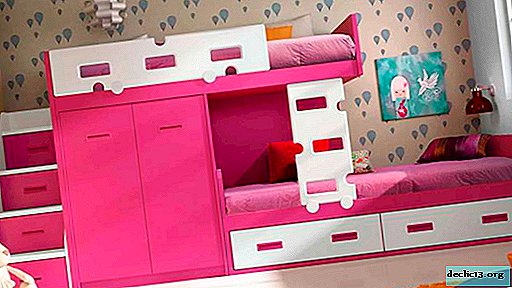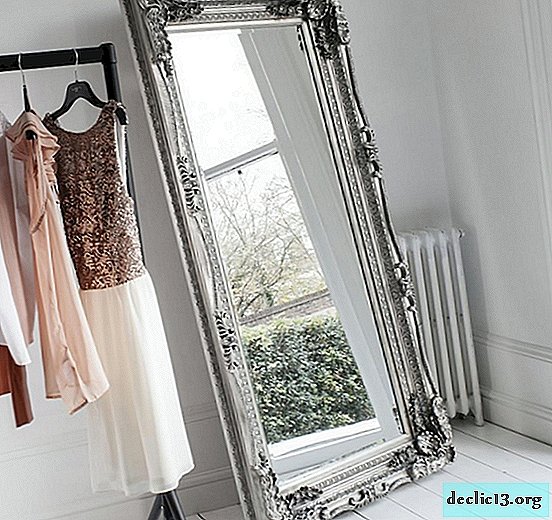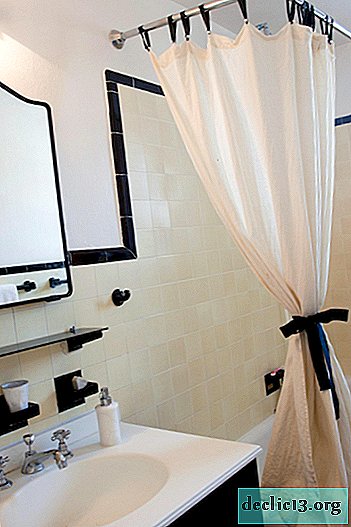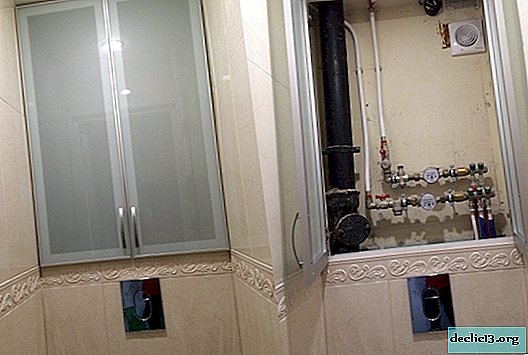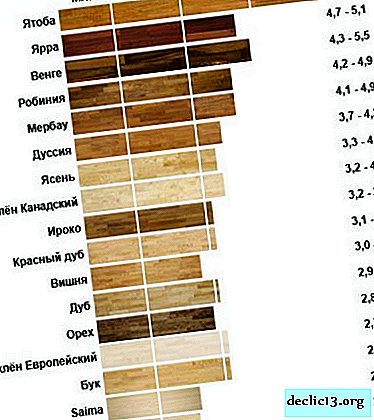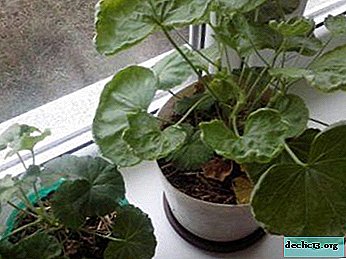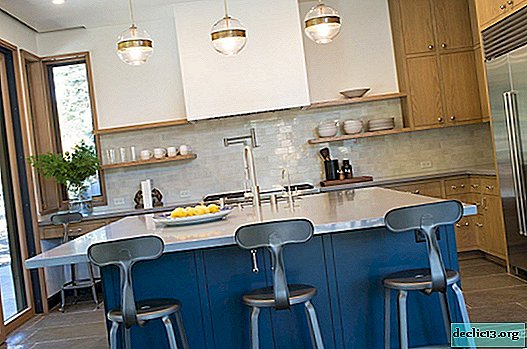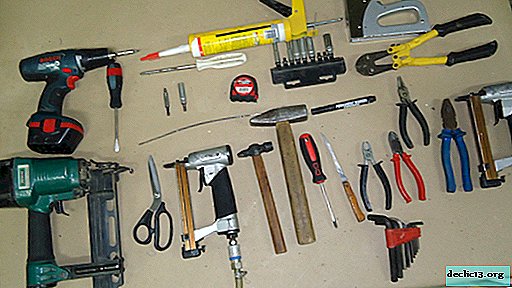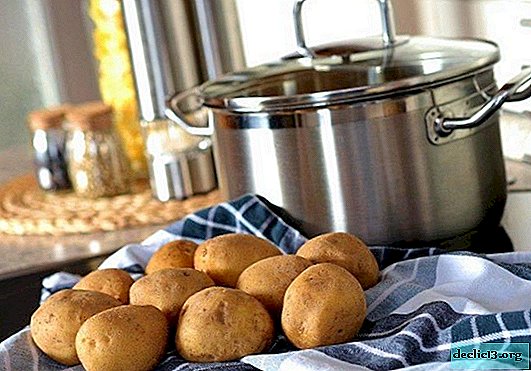How to store wine

Wine was invented thousands of years ago. It was readily used by the ancient Romans and modern people do not pass by. True, when buying a drink in supermarkets, people do not think about how to store wine at home.
Any wine has an expiration date. In a tightly corked bottle it is stored for decades, but after opening, the shelf life is significantly reduced.
I dedicate this article to the proper storage of a wonderful drink. Having listened to the tips, you can store wine longer and protect the health of loved ones.
- Store wine in the dark. Under the influence of ultraviolet rays, the drink will receive an unpleasant aroma. If this is not possible, wrap the bottle in a thick cloth or put in a box.
- Keep corked bottles on their sides.. Prolonged storage in an upright position will cause the cork to dry out. As a result, the air gets to the drink and spoils it. The bottle should lie with the label up to notice deposits that have formed in the wine in a timely manner.
- Maintain a constant temperature. No higher than 24 degrees. Otherwise, the drink will begin to oxidize. If you intend to store wine for more than a year, set the temperature to within 12 degrees. Temperature changes should be slow and rare. Otherwise, the wine will begin to age. Red wines are more demanding on temperature than white counterparts.
- Provide free access to bottles. Even slight vibration will adversely affect quality.
- Recommended air humidity - 70%. This humidity will protect the plugs from drying out and minimize evaporation. Make sure that humidity does not exceed 70%. Otherwise, mold will begin to grow, and the labels will peel off. A hygrometer will help with which the humidity in the room is monitored.
- Do not store near strong odor products.. The wine breathes and absorbs extraneous aromas. To prevent such a situation, arrange good ventilation in the room.
- Observe storage periods. Not every wine, unlike cognac, gets better over time. We are talking about cheap wines offered by ordinary shops and supermarkets. Red wines are stored for no more than 10 years, and white - 2 years.
- The taste is directly dependent on temperature. In each case, the temperature is different. The temperature of rose wine when serving is 11 degrees, and champagne is about 7 degrees.
You got the first idea of how to store wine. This article does not end there. Since not every person has a room suitable for storing wine at home, I will consider the best ways at home. Keep reading the story and gain new knowledge in the field of alcohol storage.
How to store wine at home

In the old days, people kept bottles of wine in special cellars. Such a room is best suited for these purposes. But, not everyone has a cellar, especially if a person lives in a city apartment with a small kitchen. At the same time, many drink connoisseurs collect bottles and are interested in creating the right conditions.
- Stable temperature. 12 degrees is the best option. Higher temperatures will speed up the processes inside the drink. Low temperature slows them down, which adversely affects the quality of the product.
- Only smooth temperature changes. If you intend to store wine for a long time, purchase a wine cabinet with functions to control humidity and temperature. Such furniture is a great alternative to the cellar.
- Ideal humidity - 70%. Set 70% humidity if you want to store wine for more than 36 months. After such a period of time, the effects of dry air are manifested. Higher humidity leads not only to damage labels, but also to damage the cork.
- Dim lighting. Prolonged exposure to bright light activates chemical reactions that lead to spoilage of wine. That is why it is recommended to store the drink in complete darkness.
- No vibrations. Wine is a vibration-sensitive drink. Choose a place of storage quiet and calm. Many experts do not agree with this opinion, justifying the existence of cellars located under the railway. According to them, this does not affect the quality.
- Odorless clean room. Foreign odors adversely affect the aroma of wine. In the room where the bottles are stored, the air should be clean. There should be no preservation, vegetables or other products near the bottles.
Video instruction
I shared information on how to store wine at home. Creating good conditions for storing a drink at home is not easy. But, if you want to keep the taste, be sure to make a little effort. Believe me, in the end you will get true pleasure, which you can’t buy for money. Only drink the drink carefully, because it is not easy to remove the wine.
How and how much to store open wine

According to scientists, two glasses of good wine in the evening will not harm the liver. Many fans of alcoholic beverages unconditionally listen to the statement.
People who are right on alcohol often have unfinished bottles. Moreover, many avid cooks use wine in the cooking process. They do not consume a full bottle at a time. What to do?
If you uncork a bottle, a turning point happens in the life of the wine, as the drink begins to interact with oxygen.
The shelf life of an open bottle of wine depends on age. Better for storage is young red wine, the aging period of which does not exceed 5 years. It is enough to pour it into an opaque tight-fitting bottle. This will not only soften the tannins, but also reveal a bouquet of flavors.
Old wines are very fragile. In some cases, no more than a few hours are needed to spoil and lose the original taste. In the case of old collection wines, the time span can be calculated in minutes.
What conclusions can be drawn? It is not recommended to store age wine after uncorking the cork. As for young wines, they retain their original taste and are great for cooking lamb in the oven.
- A refrigerator is suitable for storing wine. At low temperatures, oxidation and other chemical reactions slow down. Such conditions do not allow vinegar bacteria to spoil the taste of the drink. Therefore, an unfinished bottle should go directly to the refrigerator from the table.
- Wine can be poured into smaller containers. This will reduce the harmful effects of oxygen. Some wine connoisseurs claim that the procedure is completely useless. But, as practice suggests, they are mistaken.
- Special sediments for pumping air out of bottles are sold.. The fixture consists of a rubber stopper and a small pump. This tandem creates a partial vacuum in the container. True, the process greatly affects the taste of wine, which cannot be said about the transfused drink. What leads to a deterioration in taste? During the procedure, carbon dioxide rises to the surface. Other volatile compounds present in wine come with it. In general, the method allows you to store wine for a long time, but in the end it will lose its unique taste.
- Desperate wine connoisseurs use nitrogen for storage. Using a syringe, which is used in the clinic for injections, they inject nitrogen into the bottle. The substance settles on the surface, preventing reaction with air. I do not approve of the technique, and the nitrogen tank needs to be stored somewhere.
These methods are not suitable for storing sparkling wines. Neither transfusion, nor nitrogen, nor the refrigerator can keep the bubbles. For this reason, alcoholic beverages that are bubbling must be drunk immediately. You can purchase a safety cap that will keep the bubbles, but the taste of the drink will change even after a short storage.
Video tipsSumming up the conversation about how and how much to store open wine at home, I note that almost all wines are suitable for storage for only a few days. If after the celebration of the New Year or birthday, an open bottle remains, I recommend using the drink for the next few days.
Diseases and vices of wine
People who make wine at home often make serious mistakes and mistakes that cause illnesses and vices of wine. In addition, improper storage leads to loss of color and taste. Let's look at the disadvantages and diseases of a wine drink.
The list of wine deficiencies is represented by an inharmonious taste, high acidity, and yeast flavor. Biochemical processes often lead to the appearance of defects. The diseases are represented by obesity, bloom, vinegar oxidation and others. These processes are the result of the activity of microorganisms that enter the must with yeast.
Identifying a vice or a disease of wine is easy. The mother-of-pearl color of the drink is evidence of the disease, and black or whitish shades are signs of malformations. If the wine becomes cloudy, tannins are oxidized. If silky streams are observed - bacteria are present.
How to open a bottle without a corkscrew
Let's imagine that the wedding anniversary has come, the guests have gathered, and there is nothing to open a bottle of wine at home. Help materials and savvy will help. Believe me, there are no hopeless situations.
- If there is no corkscrew, you can open the bottle with a screw, screwdriver and pliers. Screw the screw into the cork and pull out with pliers, with a little effort.
- Will come to the rescue and penknife. Insert it deeply into the cork, and then, folding it at an angle of 90 degrees, pull out the cork.
- If there is no knife or tools nearby, open the bottle by pressing the cork inward. Twist the bottle several times around its axis and push the stopper inward.
- The most resourceful fans open the bottle, pushing the cork out. To do this, tap the bottom of the bottle with a thick book or other improvised item.
So the article came to the end in which you learned how to store wine. I shared interesting information about the diseases and diseases of the drink, and how to open the bottle without a corkscrew.

